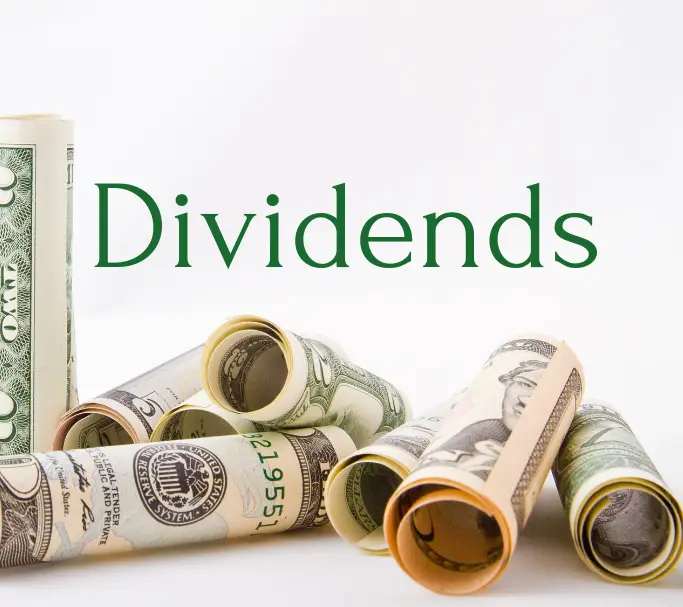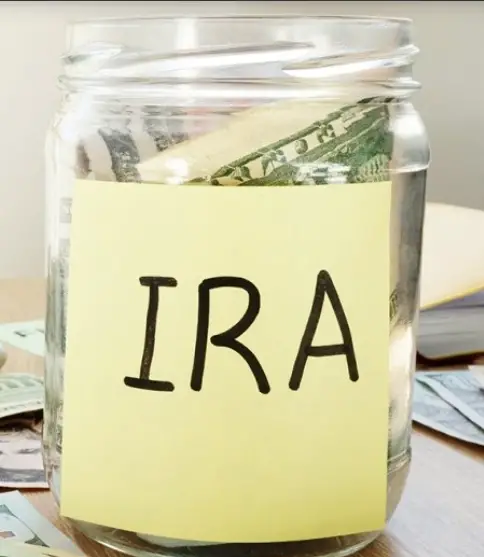What Are Dividends and How Are They Taxed?
Table of Contents
What are dividends?
Dividends are a type of investment strategy where people will buy stock, ETFs, bonds, etc. and the seller of the shares of these investments will decide on and pay out a certain percentage of interest compared to the price the shares were bought for. These dividend payouts can be paid to the investor monthly, quarterly, bi-annually, or annually.
In the case of Sofi Invest, they recently introduced a couple of new ETFs named TGIF and WKLY that pay their dividends weekly. The seller of the individual shares of these types of investments uses dividends as an added incentive in order to entice people to invest in their shares.
These dividends are taxed in various ways depending on what you invest in. There are two types of dividends. There are qualified dividends and then there are non-qualified dividends. If your dividends are qualified, they will be taxed at the capital gains rate which is lower than your regular income tax rates. If your dividends are unqualified then that means they will be taxed at the regular income tax rates.
How are dividends taxed?
What are qualified dividends and how are they taxed?
In order for your dividends to be considered for capital gains taxes, you need to have owned shares of a particular type of stock for a certain “holding period” which is determined by the IRS. There are different rules for different types of stocks for how long the “holding period” is supposed to be.
- For common stocks, which are stocks sold by individual companies like Walmart, Exxon, Apple, Google, or shares of ETFs that hold only these types of stocks, the shares must be held for more than 60 days before the ex-dividend date of a company.
- The 60-day rule also applies to mutual funds
- For preferred stocks, which are the type of stock shares that the like of Warren Buffet buys when he makes deals to buy millions of shares of a company but are sometimes available to regular investors, the shares have to be held for over 90 days before the ex-dividend date.
If your dividends are qualified dividends they will be taxed at the capital gains rate, which is typically lower than your regular income tax rates. Depending on the tax bracket you are in you might pay 0% in taxes! Unfortunately, in order to pay 0% in capital gains taxes, you have to be making a noticeably small amount of money. If you earn higher than that the two tax brackets above that pay 15% or 20% capital gains taxed.
The capital gains tax brackets for 2021
Capital Gains Tax for Singles
| Tax Bracket | Tax Rate |
| $0-40,000 | 0% |
| $40,001-441,550 | 15% |
| $441,551 and greater | 20% |
Capital Gains Tax for Married Filing Jointly
| Tax Bracket | Tax Rate |
| $0-80,000 | 0% |
| $80,001-496,600 | 15% |
| $496,601 and greater | 20% |
Capital Gains as Head of Household
| Tax Bracket | Tax Rate |
| $0-53,600 | 0% |
| $53,601-469,050 | 15% |
| $469,051 and greater | 20% |
What are Ordinary Dividends and how are they taxed?
Ordinary dividends are dividends paid out by regular companies and ETFs holding them that do not meet the required “holding period”. They also apply to other types of investments like REITs (real estate investment trusts). Ordinary dividends are taxed at the regular income tax rates for wherever you are for state and federal income tax rates.
Here are the tax brackets for ordinary dividends as of 06/2021
| Tax Rate | Singles Tax Bracket | Married filing Jointly Tax Bracket | Heads of Household Tax Bracket |
| 10% | $0-9,950 | $0-19,900 | $0 to $14,200 |
| 12% | $9,951-40,525 | $19,901-81,050 | $14,201 to $54,200 |
| 22% | $40,526-86,375 | $81,051-172,750 | $54,201 to $86,350 |
| 24% | $86,376-164,925 | $172,751-329,850 | $86,351 to $164,900 |
| 32% | $164,926 to $209,425 | $329,851 to $418,850 | $164,901 to $209,400 |
| 35% | $209,426-523,600 | $418,851 to $628,300 | $209,401 to $523,600 |
| 37% | $523,601 and greater | $628,301 and more | $523,601 or more |
Municipal bonds and Municipal bond funds = 100% free dividends no matter your income!
I have written on a few other posts about investment strategies that allow people to avoid taxes on their investments on my posts about Roth IRAs and Roth 401ks. I also briefly mention the strategy of municipal bonds and bond funds in my post about taxable investment accounts.
Municipal bonds and bond funds are similar to stocks traded on the stock market. The purpose of municipal type bonds is to help the state and federal government fund infrastructure projects like the building and maintenance of roads, bridges, and etc. One particular noticeable downside of bond funds is that they have higher fees than a lot of regular ETFs. But, since municipal-type bonds are sold to help fund government projects, under the law they get special treatment in regards to how they are taxed.
How are municipal bonds and bond funds taxed?
Because municipal type bonds get special treatment under the law, this means that all municipal bond dividends are tax-exempt at least on the federal level. They can also be exempt from state and local taxes too if your primary residence is the same place the municipal bonds are invested in.
So, if you invest in municipal-type bonds that are used to fund California infrastructure and your primary residence is in California, then you pay ZERO TAXES at both the federal and state income tax levels on the dividends you receive from those bonds or bond funds. However, if you invest in municipal-type bonds that are from a state other than the one from your primary residence, then they are exempt from federal income taxes, but you still have to pay state income taxes on the dividends your receive.
When selling the bonds or shares of a bond fund themselves, they are subject to regular capital gains rules that require them to be held for the usual 60-day minimum “holding period”.
Click here to start investing with Robinhood! https://robinhood.c3me6x.net/qny0Bg
Click here to start investing with M1 Finance! https://m1finance.8bxp97.net/4edv5o
Note: This page contains affiliate links that will, at no cost to you, earn me a commission. You are in no way obligated to click on the links!
Disclaimer: I am not any sort of investment or financial professional giving any sort of legal advice. I’m just some guy trying to teach other people about how they might navigate the financial world.







